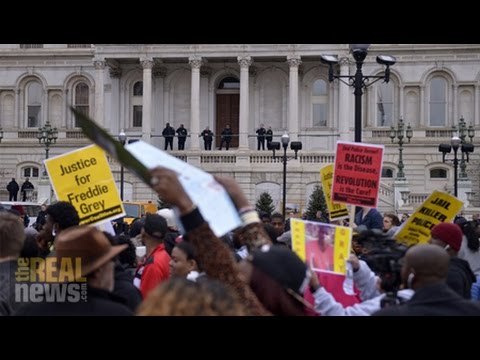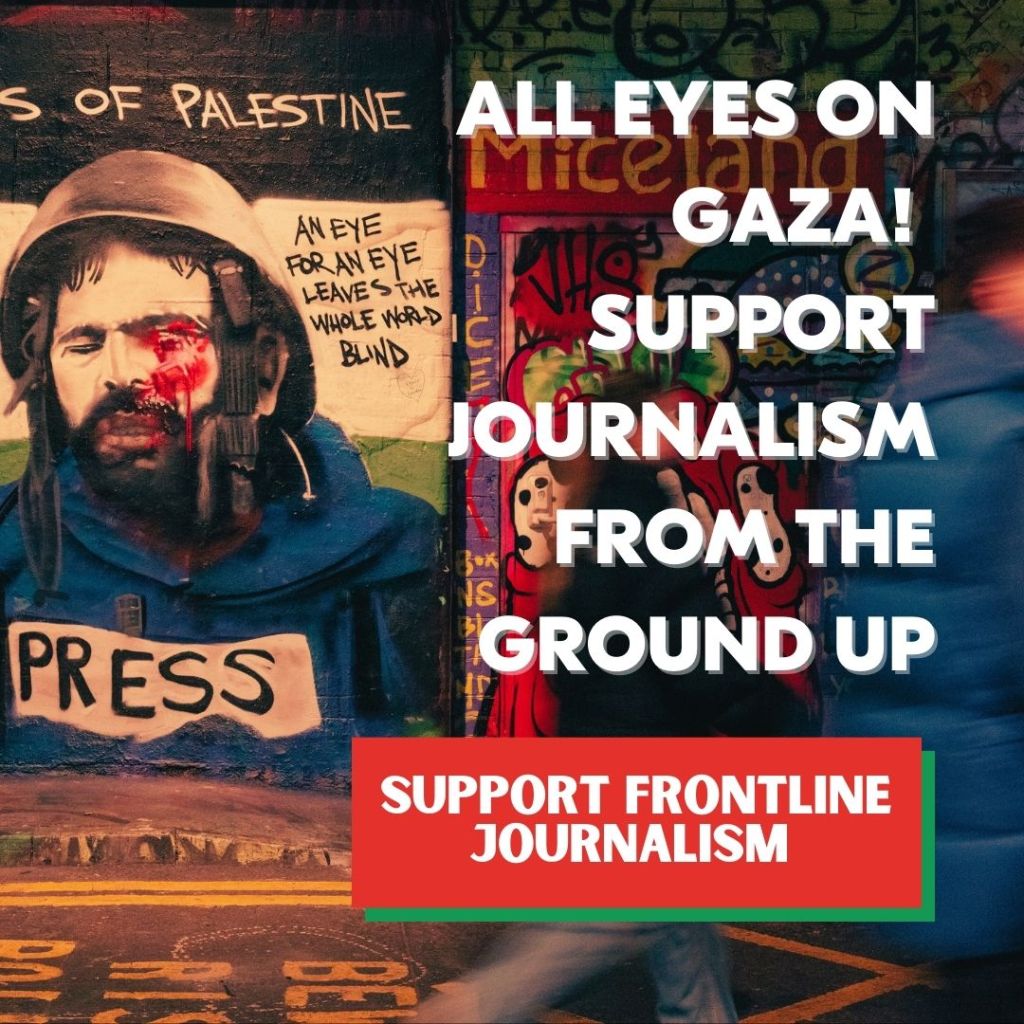
Is community control needed to reform law enforcement in Baltimore?
Photography: Cameron Granadino, Megan Sherman
Editor: Stephen Janis
Scripted: Stephen Janis
Story Transcript
STEPHEN JANIS, INVESTIGATIVE REPORTER, TRNN: The streets of Baltimore are ostensibly calm, a peace that appears to be the result of a swift indictment of six officers in the death of Freddie Gray, who died a week after his arrest from a severed spine. But simmering beneath the surface is a discontent over who is responsible for the civic malaise and failed policies to put the city’s blighted neighborhoods and aggressive policing under intense international media scrutiny. Part of the concern is over what happens next to the police department. Today the Mayor asked the Justice Department to do a full civil rights investigation, a step up from the current probe which could not compel change from its findings. But as more federal involvement appears to be in the offing, many say the community is wary and tense over fears that a police department used to operating unfettered will be hard to hold accountable without any real community oversight. TAWANDA JONES, SISTER OF TYRONE WEST: I just feel like I wish they would have listened, and I’m praying now that they listen. It’s still not too late to listen. JANIS: Some of that tension boiled over earlier this week as protesters disrupted a council meeting to call attention to the suspension of rules that allowed protesters to be held for up to 48 hours without receiving a bail review. Coupled with the Mayor’s refusal to answer questions at a Friday afternoon press conference while the city was still under lockdown and in the throes of crisis, the mood among activists is decidedly skeptical. JONES: Tyrone West, Anthony Anderson, George Booker Wells. Freddie Gray is just [incompr.] practice. JANIS: And it wasn’t just City Hall under fire. A hastily-organized workgroup in Annapolis will be convened in June to reconsider failed efforts to reform how police are disciplined in Maryland. A body that excluded one of the key advocates for change in the past, state delegate Jill Carter. JILL CARTER, MARYLAND STATE DELEGATE (D-41): What’s really important is that–I worked with a lot of the organizers and advocates and–more than 300 throughout the course of session came down to Annapolis to testify of their own, tell their personal stories, and then also to protest. And so the way that–what’s really going on is, to silence me and to take me off of this workgroup is to silence them. JANIS: All of this occurred against a backdrop of a prospect of more federal oversight of the city’s beleaguered police department amid a curious move by the city to augment officer training. On Tuesday, Attorney General Loretta Lynch visited Baltimore to speak with activists, community leaders, and police about the death of Gray. ATTORNEY GENERAL LORETTA LYNCH: But like all of us in law enforcement, I know that all of you know what you’re getting into. We think that we do. JANIS: Her visit coincided with news that the city is hiring University of Baltimore law professor Byron Warnken to teach police how to make legal stops. BYRON WARNKEN, MARYLAND ATTORNEY AND LAW PROFESSOR: I think that the last two weeks is just a demonstration that we constantly need to make sure that police officers are trained and in fact are doing what they were trained to do. JANIS: But even with more federal intervention in the offing, advocates for change are wary. Dayvon Love, policy director for the Leaders of a Beautiful Struggle, says federal intervention won’t help unless community, not just the government, has their own tools to hold police accountable. DAYVON LOVE, POLICY DIRECTOR, LEADERS OF A BEAUTIFUL STRUGGLE: I mean, ultimately like I’ve always said, it’s about independent black institution building, developing our fortitude to force law enforcement and political establishment to act in the way that is in our best interests. JANIS: Reporting from Baltimore, Stephen Janis for The Real News Network.
End
DISCLAIMER: Please note that transcripts for The Real News Network are typed from a recording of the program. TRNN cannot guarantee their complete accuracy.



